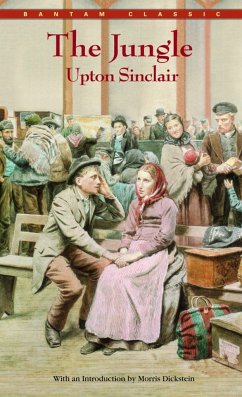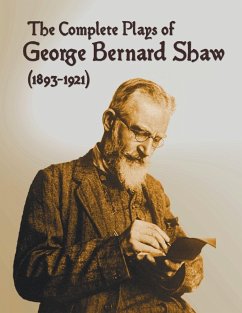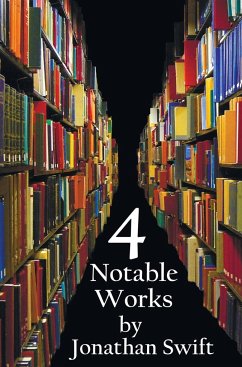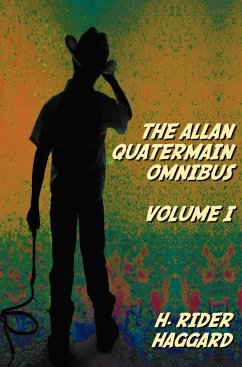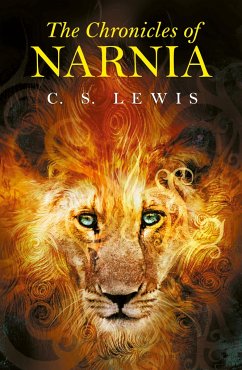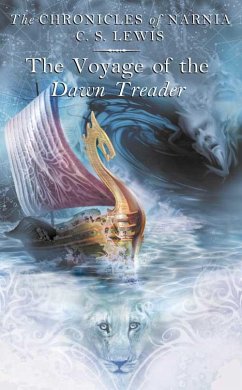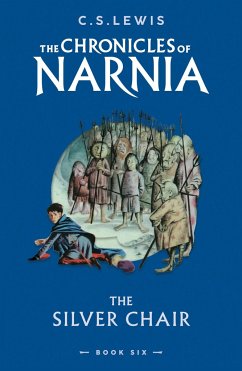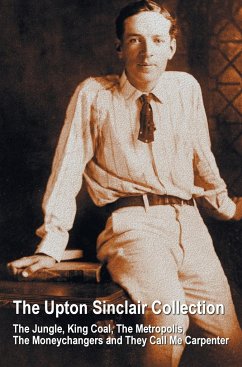
The Upton Sinclair Collection, including (complete and unabridged) The Jungle, King Coal, The Metropolis, The Moneychangers and They Call Me Carpenter

PAYBACK Punkte
34 °P sammeln!
Hold on to your hats for a ride through the injustices of 1900s America courtesy of Upton Sinclair, (1878 - 1968), an American author and commentator who wrote nearly 100 books. Not only did he write amazing stories and expose dreadful truths, he changed America for good, the public uproar resulting from his books caused Laws to be passed and greater justice was the outcome. In 'The Jungle' we meet a young Lithuanian immigrant who arrives in America, hoping to find the land of opportunity. He works in the Chicago stockyards, where he finds himself treated as a slave; he has, in fact, arrived i...
Hold on to your hats for a ride through the injustices of 1900s America courtesy of Upton Sinclair, (1878 - 1968), an American author and commentator who wrote nearly 100 books. Not only did he write amazing stories and expose dreadful truths, he changed America for good, the public uproar resulting from his books caused Laws to be passed and greater justice was the outcome. In 'The Jungle' we meet a young Lithuanian immigrant who arrives in America, hoping to find the land of opportunity. He works in the Chicago stockyards, where he finds himself treated as a slave; he has, in fact, arrived in a jungle of human suffering. 'King Coal' charts the lives and deaths of coal miners in the Western United States in the early 1900s. Americans and immigrants are working as slaves. It is up to them to fight back. In 'The Metropolis' we find another side of the early 1900's - a time when the rich were carefree and enjoyed life because it was one endless party. We meet the people with immense fortunes and an endless supply of money who need to spend, spend, spend to keep up with their contemporaries. It may be set in the 1900s but it is scarily similar to the lives of modern day celebrities. 'The Moneychangers' follows another section of society - those who worked on Wall Street. Motivated by greed and pride, an immense power struggle is played out that eventually leads to the stockmarket crash and runs on the banks. Starting out harmlessly enough, this sad story escalates into malicious double crossing, back stabbing and ends with broken people and America in economic disaster. Again, the parallels to our own times are evident. To finish this epic set of books there is the novel, 'They Call Me Carpenter'. Jesus steps out of a stained-glass window, unsure as to whether church is the right place for him any more. And so starts the story of 'Mr Carpenter' encountering people as he did in the Gospels - modern day equivalents of the same people, places and issues. Christianity is brought to life in this vivid novel. Shockingly, Mr Carpenter is concerned with the outcast and the plight of the poor and is sickened by the privileged who add to the abuses of the poor. Mr Carpenter gets a similar reception in this novel as Jesus receives in the Gospels. It really is a must-read.





